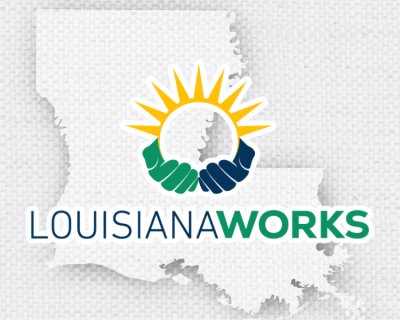
Louisiana Voucher Applications Roll Forward Despite Union Lawsuits
Jindal credited with “forward-thinking” reforms; Catholic schools “relish the challenge of bringing in new students”
Thousands of school voucher applicants who want to exit unsafe, ineffective public schools made history on Friday. That was the deadline for eligible families to apply for scholarships that can be used to cover the cost of private school tuition.
In May, state lawmakers approved what is arguably the most far-reaching school voucher program in the entire country at the behest of Gov. Bobby Jindal. Under the new legislation (Act 2), any Louisiana student enrolled in a school with a C grade or lower could apply for a voucher. About 950 schools out of 1300 statewide fall in this category.
Applicants must also be part of a household with an income that does not exceed 250 percent of the federal poverty rate, or $57,625 for a family of four. This means about 380,000 students out of 700,000 statewide were eligible to apply. The latest figures available through the Louisiana Department of Education show over 7,500 applications were submitted.
The total number of seats available to voucher students is to be determined. An initial estimate was 5,100, but the final tally will likely be lower. This is in addition to the 2,300 seats that are available to voucher students in New Orleans where a pilot scholarship program has been up and running since 2008. The Louisiana Department of Education has published a list of participating schools, and the number of spaces available for voucher students in each school.
If the pilot program had not been an option for her youngest child in New Orleans, Valerie Evans probably would have moved out of Louisiana. After Hurricane Katrina hit, she temporarily relocated to St. Charles where her son attended the public school system through the first grade. When Evans returned to New Orleans, her son entered the second grade.
“The scholarship was a life saving event for me,” Evans said. “I was not going to keep my child in the public school system. That second grade school year in New Orleans was the most horrible experience for my child and for me. Safety was an issue, and so was the education.”
She advised parents who are new to the program to carefully vet each school that is an option for their child. “Not every school is a perfect fit,” Evans warns. Moreover, students who are switching out of the public school system for a private school option will most likely find that they are behind academically, she added.
Nicholas Bolt, deputy chief of staff to the Department of Education, said that participating schools have settled on an incremental approach that carefully matches the academic needs of incoming voucher students with available resources.
“We see the schools moving at a gradual pace to see how many students they can accommodate,” he said. “One key lesson we learned out of New Orleans is that the program has the potential to grow, and perhaps grow significantly over time.”
By the end of July, applicants will know whether or not they have been accepted as voucher recipients. In the meantime, the Black Alliance for Educational Opportunity (BAEO), a leading proponent of school choice, has been holding expos throughout the state where organizers field questions about the scholarship application process.
“We have to make it as easy and straightforward as possible for parents to access information,” Bolt said. “It’s important for schools to be as upfront as possible about what the requirements are and what is expected. That’s been a vital part of the success in New Orleans, and it’s what needs to happen statewide.”
The lottery system education officials will use to fill open seats prioritizes students who are already scholarship recipients in New Orleans and prospective students who have siblings in the program. Applicants who are in D and F schools are also prioritized over students who are in C schools.
Marian Feritta, superintendent for the Diocese of Houma-Thibodaux, said the Catholic schools relish the challenge of bringing in new students, but also said it was important to avoid over-reaching.
“We are very excited to have the opportunity to provide a choice for students who would not normally have any other option than to remain where they are,” she said. “It is part of our mission as Catholic schools to provide a Catholic education to anyone who wants it.”
Students who are backed by engaged parents and devoted teachers respond very effectively when high standards are set, Feritta added.
Bolt, the education department chief of staff, concurs. He notes that test scores for scholarship recipients in New Orleans have moved up. The department’s figures show that the proportion of voucher recipients scoring at or even above grade level has jumped by 7 percent since the pilot program was put in place.
Even so, Fertitta prefers to start gradually.
“We certainly do not want to set anyone up for failure,” Fertitta said . “That’s why we’d rather have three or four seats opened that we could handle, instead of say seven or eight. That would not be fair to the teachers or the students.”
Unions Sidestep U.S. Supreme Court Ruling
In 2002, the U.S. Supreme Court upheld the constitutionality of school vouchers in Zelman v. Simmons-Harris, which involved a pilot scholarship program in Ohio. The Court ruled that the program did not violate the First Amendment’s establishment of religion clause. Even so, the National Education Association (NEA) and the American Federation Teachers (AFT) have in some cases successfully blocked policy changes that would allow for school vouchers.
The Louisiana Association of Educators (LAE) and the Louisiana Federation of Teachers (LFT) have both filed lawsuits against using the Minimum State Funding Formula (MFP) to pay for the statewide scholarship program. The suits sidestep the constitutional question that has already been settled concerning separation of church and state. Instead, the union litigants claim that language in the state constitution prevents the MFP from being used to fund private schools.
LAE Attorney Brian Blackwell of Blackwell & Associates argues voucher funding mechanism violates both the Louisiana Constitution and local property and sales tax referendums and ordinances.
“Voters approved taxing themselves to better the public schools in their home parishes. No voter was ever asked to approve public funding of non-public schools,” said Blackwell. “The use of local funds for non-public schools violates the specific directions of the electorate.”
In June, the Louisiana School Boards Association joined with the unions to file legal challenge against the voucher program. The LFT has filed a separate suit challenging the changes made to the teacher tenure laws.
Jindal Administration officials have made it clear they will vigorously defend the scholarship program.
“We are confident that not only is the scholarship program sought by thousands of Louisiana families, but also that it is fully compliant with our state’s constitution,” Bolt said.
Lawyers for the state defending the legality of the voucher program claim that the constitution only stipulates that the MFP be used to benefit public school students, not the school districts per se. Therefore, it is permissible for public school dollars to “follow the child,” they argue.
Gov. Jindal has also responded to the legal action:
“Forty-four percent of our public schools are failing, 225,000 students are below grade level, and our state is spending a billion dollars a year on failing schools, that’s unacceptable,” he noted. “The people of Louisiana demand and deserve better. The coalition of the status quo have fought reform every step of the way, so it is no surprise they are making this last ditch effort to convince the courts to overrule the vote of the people and the Legislature. Holding up these reforms in court will only deny parents and students the opportunity to escape failing schools. Our kids do not get a second chance to grow up.”
As of 2011, over 200,000 students in 18 states, including the District of Columbia, benefited from vouchers, tuition tax credits or education savings accounts, according to the Heritage Foundation. But the teachers unions remain highly mobilized against choice initiatives across the country, and school vouchers in particular.
Lindsey Burke, an education policy analyst with the Heritage Foundation, criticized union officials for setting the wrong priorities.
“It’s unfortunate that the unions are once again standing with the failing status quo instead of with the children previously trapped in the 40 percent of Louisiana schools that are underperforming,” she said. “Jindal’s reforms were some of the most forward-thinking and innovative in the country. His administration has made school choice a reality for thousands of children, and will ensure high quality teachers remain in the classroom. Other states would do well to mimic the Louisiana reform model.”
Robert Enlow, president and CEO of the Friedman Foundation for Educational Choice, anticipates that Louisiana’s voucher program will influence policymakers in other states as it continues to grow in size and scope.
“What it does, is it alters the marketplace for the delivery education, and eradicates boundaries so that where a person lives does not limit their ability to make educational choices,” Enlow observed. “What it also means is that systems are becoming secondary to students. The focus now is on what kids need.”



